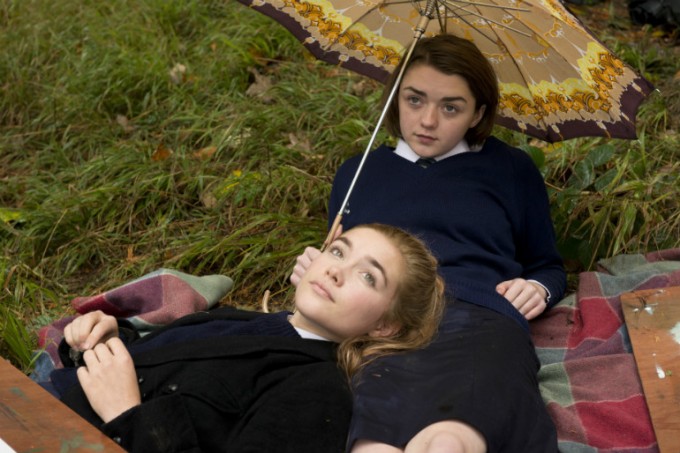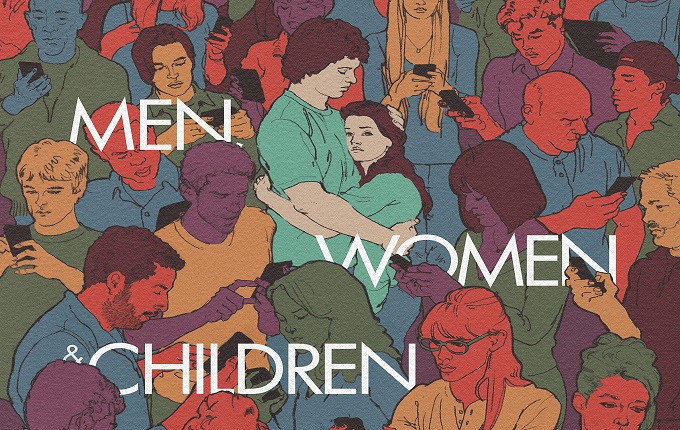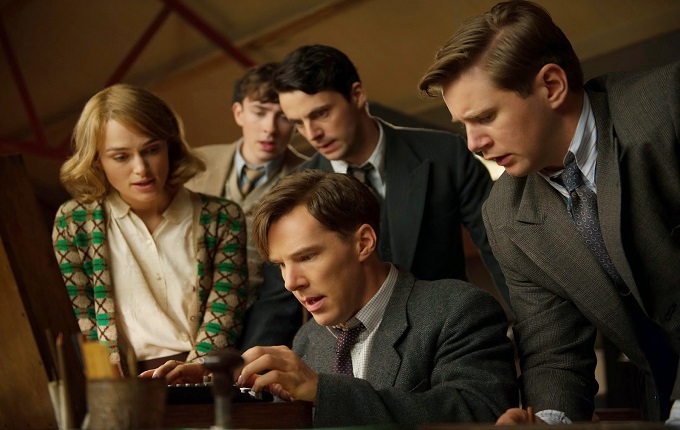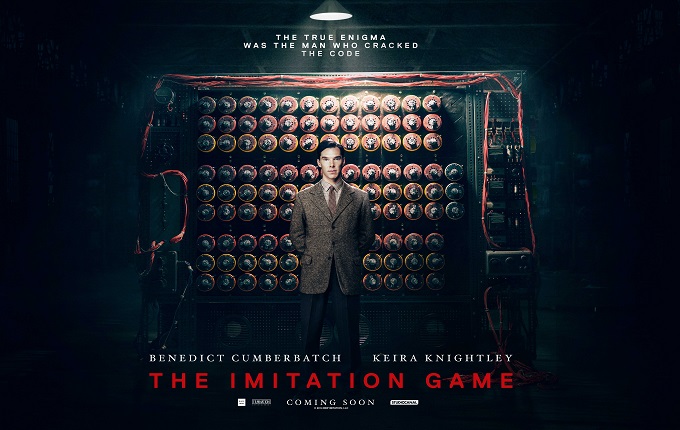British Independent Film Award Nominations 2014
This year’s nominations for the British Independent Film Awards were announced by Jared Harris today with the Imitation Game, Pride, ’71, Mr Turner and Frank leading the field with multiple nominations. Benedict Cumberbatch is honored with this year’s Variety Award, while Emma Thompson receives the Richard Harris Award.
Best Director
The Douglas Hickox Award [Best Debut Director]
Matthew Wolfe and Daniel Wolfe for Catch Me Daddy
Hong Khaou for Lilting
Iain Forsyth and Jane Pollard for 20,000 Days on Earth
Morgan Matthews for X+Y
Yann Demange for ’71
Best Supporting Actor
Best Technical Achievement
Best Documentary
The Falling Review

The Plot
Set in 1969, The Falling is an unconventional coming of age tale centering on two friends, Lydia (Maisie Williams) and Abbie (Florence Pugh). Despite their powerful bond, when tragedy strikes, Lydia becomes overtaken with a mysterious delirium which soon spreads to other classmates…
The Good
Much like Maisie Williams’ most well known acting credit Game of Thrones, The Falling is a film about which the plot can only be slightly mentioned for fear of spoilers. Williams soon takes centre stage to drive much of the narrative as she comes to terms with an event that occurs around the one third mark. The resulting film is a beautifully shot piece accompanied by varied but ever so fitting scores and songs from the era. With gorgeous cinematography from Agnès Godard that adds to the artistic beauty already brought to the screen by Williams and director Carol Morley.
The film benefits from solid supporting cast work from Maxine Peake as Lydia’s antisocial mother , Joe Cole (Peaky Blinders) as Lydia’s magic obsessed brother and Greta Scacchi as one of the schoolteachers. They collectively bring just as much to the screen as Williams does, albeit more sparingly.
But it’s Williams who is undeniably the main attraction in The Falling. The story while hard to interpret at parts is held together by Williams, proving even more than she already has in Game of Thrones that she is certainly an actress to take notice of. With films like this under her belt already at this age she seems to know what she wants and will no doubt become a familiar face as the years pss.
The Bad
For Game of Thrones fans who are excited to see their favourite actress in her first leading role, it really has to be stressed that The Falling is not an easy watch. It needs full attention and even then it may not give you the answers you want. It is a story that comes with many obvious questions. If you stick with it you’ll find that the story brings it own rewards, if not easy answers. There are some satisfying conclusions to be found, at least for those willing to look hard enough. At 102 minutes long it doesn’t seem too much to commit to.
The Ugly Truth
The Falling is a beautiful piece of cinema which will enthrall you and make you contemplate it’s story long after the credits have rolled. Maisie Williams proves she has more to give in what will most certainly be a long career. It may be a bit too art house for some but if you give it time, it will grow on you.
Check out our red carpet interview with Maisie Williams at the film’s world premiere at the BFI London Film Festival 2014 below:
Men Women & Children Review

The Plot
Emma Thompson narrates Jason Reitman’s latest comedy drama, which delves into impact of technology among a whole host of characters young and old. Various interwoven stories explore how the advent of ever present social media has forever changed notions of privacy, intimacy and identity.
The Good
Opening with a shot of a satellite floating in the atmosphere above us, accompanied by the soothing tone of Emma Thompson’s voice, Men, Women and Children almost seems like a documentary. But it’s not long till we’re brought back down to earth as director Jason Reitman (Juno, Up In The Air) studies various character driven stories all focusing on the dangers of the internet. Given the constant debate about whether social media is really helping or hindering communication and recent celebrity photo leaks, it’s a timely and provocative theme.
The main issue he tends to focus on is that of sex and pornography. Whether it’s Adam Sandler and Rosemarie DeWitt as a couple who turn to dating sites and escort services, or Donna Clint (Judy Greer) and her daughter’s ‘acting website’, Men, Women and Children certainly has some interesting story lines which will make you question how pervasive the internet has become in our lives.
The most interesting segment of Reitmans collection of stories however, is that of the young teens played by Ansel Elgort (The Fault In Our Stars) and Kaitlyn Dever (Short Term 12). Elgort plays Tim Mooney, a former member of his schools football team who is abused through texts after letting the team down when he quits to shut himself away in an online game. Unlike Tim who is left to his own devices by his dad as he whittles away time online, Dever’s character, Brandy, is instead tracked, traced and generally trapped by her over-protective mother (played spectacularly by Jennifer Garner) who trusts her daughter so little that she installs a device to literally record every keystroke Brandy makes on her computer.
These stories force audience in a very immediate way to evaluate our own decisions about the prominence of technology in our lives and how the internet may be adversely affecting children and their parents. It’s easy to connect with each of these characters because the dilemmas and decisions they face will feel relevant ad familiar to our own lives.
The Bad
With plenty of stories to delve into, it’s such a shame that the narrative structure is overall the weakest part of Men Women and Children. Reitman has already done plenty to prove that he has a knack for writing smart humor that is cleverly underplayed with Juno and Up In The Air, but his latest effort doesn’t quite capture the same magic. In particular it would be easy for audiences to mistake Adam Sandler’s muted performance for boredom.
The film’s opening scene sets up Emma Thompson as the well chosen narrative voice for the film, tying together various stories from a detached vantage point, visually manifested as a satellite drifting ever further from earth and out into space. Though deployed often during the first half of the film, her voice becomes a diminished and infrequent presence as the film progresses, leaving the various story lines to struggle on under their own dramatic weight.
The film is undeniably ambitious in trying to tackle such substantial emotional and technological themes, but this perhaps proves overly ambitious for its 116 minute run time.
The Ugly Truth
While it doesn’t always match the exceedingly high standards set by his previous films, Jason Reitman’s latest is an interesting attempt to provide a commentary on the excessive use of internet in our daily lives. Though the film could perhaps be more concise, accomplished performances and important ideas ensure audience will be compelled to think about exactly how much of our lives is spent looking at computer screens.
The Imitation Game Review

The Plot
The Imitation Game is a poignant biopic of Alan Turing, the real life British maths genius who is widely credited with turning the tide of World War II by leading a team of mathematicians and code breakers in their efforts to crack the German Enigma code. The film explores both Turing’s pivotal role in the birth of computer science and the tragic personal demons he wrestled with.
The Good
Benedict Cumberbatch is an actor best known and internationally adored for playing a heroic but socially awkward genius on BBC’s Sherlock. It’s a role which the sharp witted and cheekboned British star is uniquely well equipped for. Playing Alan Turing, another socially awkward British genius and unlikely hero could easily be dismissed as comfortable typecasting. However what’s most truly impressive about Cumberbatch’s flawless portrayal is all the ways in which it isn’t simply Sherlock doing maths.
Cumberbatch paints a passionate complete portrait of a brilliant and utterly unique man. Though imbued with much of the same brashly intelligent charm and soft voiced gravitas that makes his portrayal of Sherlock so compelling, it is immediately distinguished by more fragile and tragic undertones.
Keira Knightley also thrives in a role where her clipped upper class accent is an asset not a distracting handicap. Knightley succeeds in delivering a useful counterpart for Turing as a romantic and mental companion. Combined with a deft performance from Cumberbatch, the pair creates a relationship which is immediately awkward and intimate in equal measure.
Though Cumberbatch will rightly grab the accolades and awards, in truth The Imitation Game is one of very best ensemble casts to grace the screens in recent years. Every cog in the machinery of this film fits its place perfectly and delivers compelling results. Charles Dance as a stern Navy Commander, Matthew Goode as a caddish maths boffin and Mark Strong as a sly MI6 agent are just a handful of example of the kind of sublime casting perfection the film achieves.
A thoughtful and well-paced script manages to balance telling a story about one man’s extraordinary if often troubled life, against the grand backdrop of war and inhuman global destruction. Though moments of triumph are consistently tinged with sadness, overall he film is an uplifting experience that conveys just how much technological and social advancement has been made since the miraculous events it depicts.
The Imitation Game isn’t just a story about the birth of computers, wars and government code breaking secrets. It is an immersive emotional biopic of a complicated but undeniably important man. Someone who gave the world precisely what it needed just when it needed it the most.
The Bad
Those familiar with the real life details of Alan Turing’s fate will no doubt have an entirely different perspective to younger or uninformed audiences. It may be that if you are armed with such knowledge it may be difficult to ignore it throughout. However the film subtly plays with time and narrative structure to ensure that the story thrives regardless of whether or not audiences are already aware of how things end.
The Ugly Truth
The Imitation Game serves as a fitting tribute to an almost forgotten hero. It’s a well-crafted historical biopic that shrewdly juxtaposes the grand theatre of world war with the intimate struggles and relationships of some of the least likely war heroes. Benedict Cumberbatch in particular delivers a performance that should almost certainly provide the answer to the question And the Oscar for Best Actor goes to…
The Imitation Game Premiere Live Stream

Later tonight Red Carpet News will be on the red carpet for the official opening of this year’s London film festival and you can join us…
Watch the red carpet action from THE IMITATION GAME, Opening Night Gala of the 58th BFI London Film Festival, live from Leicester Square tomorrow evening at 5:30pm in the live video stream below.
See all the arrivals and interviews with the stars including Benedict Cumberbatch, Keira Knightley, Mark Strong and Charles Dance, as they gather for the European Premiere.
